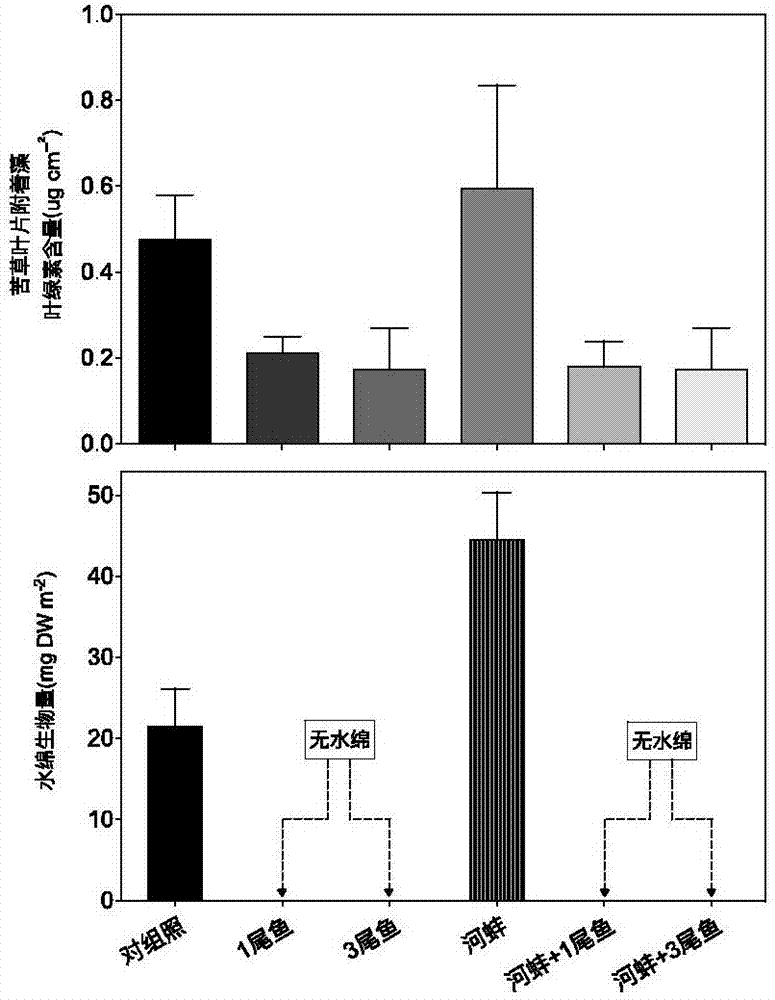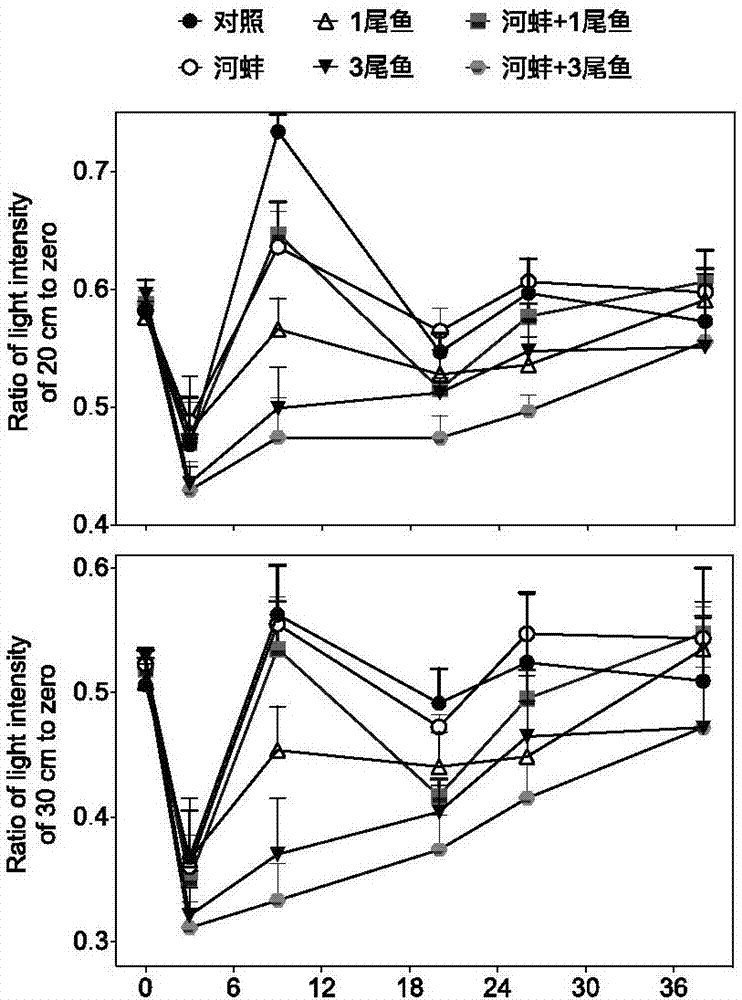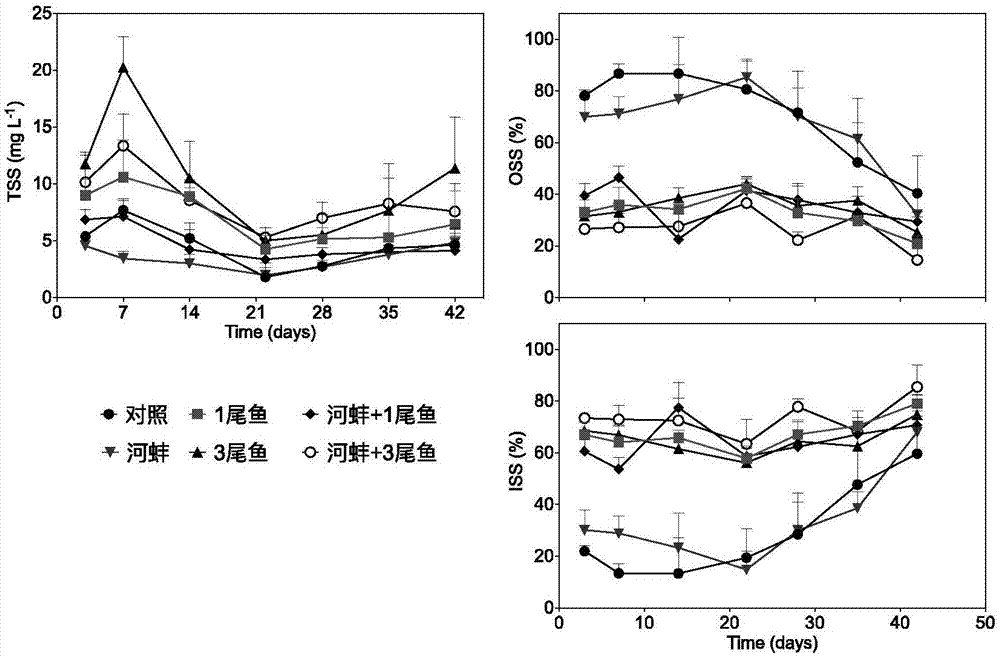Spirogyra and attached algae control method based on maintaining of water quality
A technology of Spirogyra and algae, which is applied in chemical instruments and methods, biological water/sewage treatment, water/sludge/sewage treatment, etc. and Spirogyra, the long-term control effect is small, etc.
- Summary
- Abstract
- Description
- Claims
- Application Information
AI Technical Summary
Problems solved by technology
Method used
Image
Examples
Embodiment 1
[0024] Embodiment 1 A kind of method that fish and benthic animals control the formation of Spirogyra and the increase of algae biomass attached to the surface of Erytheria
[0025] A. Experimental system: In a polyethylene plastic bucket with a volume of 200 L, hold 10 cm of lake mud filtered through a steel wire mesh with a mesh size of 0.5 cm, and then put lake water to a distance of 15 cm from the mouth of the bucket. A total of 18 buckets are needed, and 6 treatment groups are set up, which are the control group, the mussel group, 2 fish density groups (1 and 3 fish) and 2 fish-mussel composite groups (mussels+1 Snakefish and mussels+3 Snakefish), each treatment group had 3 replicates.
[0026] B. Cultivation of bitter grass: choose bitter grass with the same size, cut off the old leaves withered at the end of bitter grass leaves, and set aside. The average length of 25 cm leaves was selected, and the average biomass of each plant was 5.5 g. 20 plants of bitter grass we...
Embodiment 2
[0036] In the ponds planted with bitter grass, put the larvae fry. The body length of the larvae is 8cm, the weight is 5g / tail, and the stocking density is 2 fish / m 2 , within 10 days of putting the big fin carp into the pond, put 130g / only river mussels into the pond, and the putting density is 2 / m 2 .
Embodiment 3
[0038] In the lakes planted with bitter grass, put the big fin fish fry, the body length of the big fin is 9cm, the weight is 8g / tail, and the stocking density is 3 fish / m 2 , within 10 days of putting the big fin carp into the pond, put 168g / only river mussels into the pond, and the putting density is 2 / m 2 .
PUM
 Login to View More
Login to View More Abstract
Description
Claims
Application Information
 Login to View More
Login to View More - R&D
- Intellectual Property
- Life Sciences
- Materials
- Tech Scout
- Unparalleled Data Quality
- Higher Quality Content
- 60% Fewer Hallucinations
Browse by: Latest US Patents, China's latest patents, Technical Efficacy Thesaurus, Application Domain, Technology Topic, Popular Technical Reports.
© 2025 PatSnap. All rights reserved.Legal|Privacy policy|Modern Slavery Act Transparency Statement|Sitemap|About US| Contact US: help@patsnap.com



